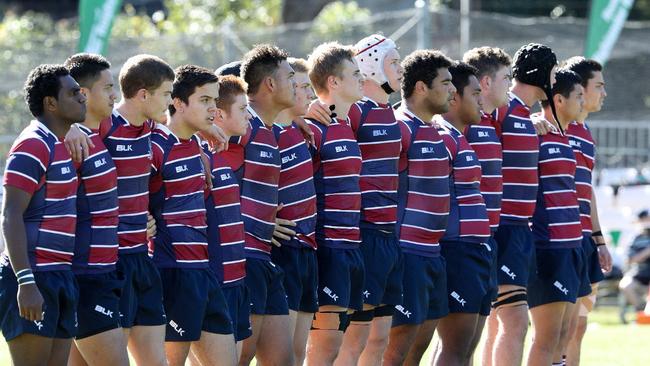In the race to secure young talent to the game has rugby lost sight of what’s really important?
RUGBY scouts are working hard to ensure that talented junior athletes remain in the game, but former Wallabies skipper ANDREW SLACK asks when is young, too young?

Rugby
Don't miss out on the headlines from Rugby. Followed categories will be added to My News.
EVEN those with the highest regard for rugby love to bag it.
Its complexity makes it an easy target as we all offer would-be solutions to the issues that frustrate the average watcher.
However, if we put the glass-half empty approach to one side and looked at the evidence from the rugby played in the past month or so in the Six Nations Tournament and a decent percentage of the Super Rugby (particularly involving New Zealand teams), the loudest critic would have to admit that, in general, the game is in pretty good health.
Our Super Rugby teams might not match the Kiwis but the best we can assemble was still good enough to beat the All Blacks the last time the two sides met, so we must be doing something right.
The key now for rugby in Australia is to look after the future. I don’t just mean winning next year’s World Cup (although that would help) but rather ensuring youngsters want to play the game.
Rugby Australia’s high performance panel met in Brisbane last week to discuss a talent ID program which cannot only enhance the playing depth but ensure its potential stars are not all swamped by the bright lights of NRL, AFL or soccer.
The sense from the HP pow wow was that the franchises and the national body will work more as one in the future so young talent will be identified and remain in the game.
My concern is when is young, too young?
After the Brisbane meeting, national high performance manager Ben Whitaker mentioned something that is both understandable and worrying.
“There’s commitment and agreement,” he said, “that if we don’t identify talent from as young as 13-14 years of age and bring them through the system, if that’s not attended to nationally with the contribution of all the Super teams, it’s never going to be strong.”
Talent ID is nothing new. I remember going to watch Elton Flatley, Karmichael Hunt and Digby Ioane in their schoolboy days. They had bullets besides their names and rugby and NRL all wanted their hands on them.
I’m also aware that scouts are everywhere in under-age rugby and rugby league carnivals but I just wonder if it is right.
School rugby and the quest for premierships is now almost a business in itself and I’m not convinced the benefits outweigh the downsides.
There are 14-year-olds at some rugby schools who, at this time of the year, are forced into multiple gym sessions and video analyses, several months out from an eight-week rugby season which is, after all, just a small part of what is supposed to be a varied and extensive education.
Sure, the real world means the potential young superstars will be lured by the Reds or Waratahs or whoever into the “system” but I do wonder how many late maturers are lost to the game.
By the time they are 17, will they already be sick of the rigorous routine they have had to go through for a game they should be enjoying, not having to endure? And, if not at 17, maybe at 21, when after a few seasons bashing away at grade or in NRC, they still haven’t cracked it in the big time.
Professional sports aren’t going to sit on their hands and ignore young talent but schools and parents need to get the balance right.
Winning premierships is fun and prestigious. However, I’m not sure providing prestige is a school’s top responsibility.
You can’t keep the scouts away but the foundation to school sports should be about fun.
I’m not sure all schools see it that way.
Originally published as In the race to secure young talent to the game has rugby lost sight of what’s really important?


